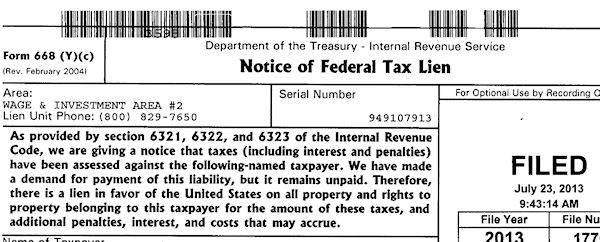Filing federal tax forms is one of those annual events that most people view as a hassle and not everyone can afford the taxes they owe, particularly in the era of the Covid pandemic. In fact, the back taxes owed by US taxpayers exceeds $130 billion dollars. Collecting on the back taxes is part of the IRS’s job, which is what leads to those unnerving bills they send out. If that doesn’t work, they may issue a federal tax lien against you or your business.
What Is a Federal Tax Lien? –
A federal tax lien is essentially a public document that the IRS issues that say it has a claim on your assets, up to the amount you owe. The tax lien essentially says that the government gets first dibs in terms of collecting on what it’s owed ahead of any other creditors.
How Does a Federal Tax Lien Work? –
If you have a federal tax lien on your property, such as a home, it can make selling that home very difficult. At a minimum, it adds a lot of extra hoops that one must jump through. An IRS tax lien also means they can seize your property to try to settle the debt. That can mean anything from garnishing wages to taking vehicles or even homes and auctioning them off.
Resolving a Federal Tax Lien –
The good news is that IRS would much prefer that you simply resolve the debt than carry through with collection actions or property seizure. Collections and seizures are costly and time-consuming.
If you pay off the tax debt, it also lifts the lien against you. You can make a lump-sum payment and resolve the debt in full. The IRS also offers payment plans that let you resolve it over time. If you are in a difficult spot financially, and are unable to afford either of those options, you can also apply for an offer in compromise. This lets you settle the debt for less than the owed sum, but it’s relatively complicated and rare.
Dealing with a Federal Tax Lien –
Simply put, if you owe back taxes, picking a repayment option is your best course of action. It helps stop or prevent aggressive collection action and will ultimately resolve your federal tax lien.

